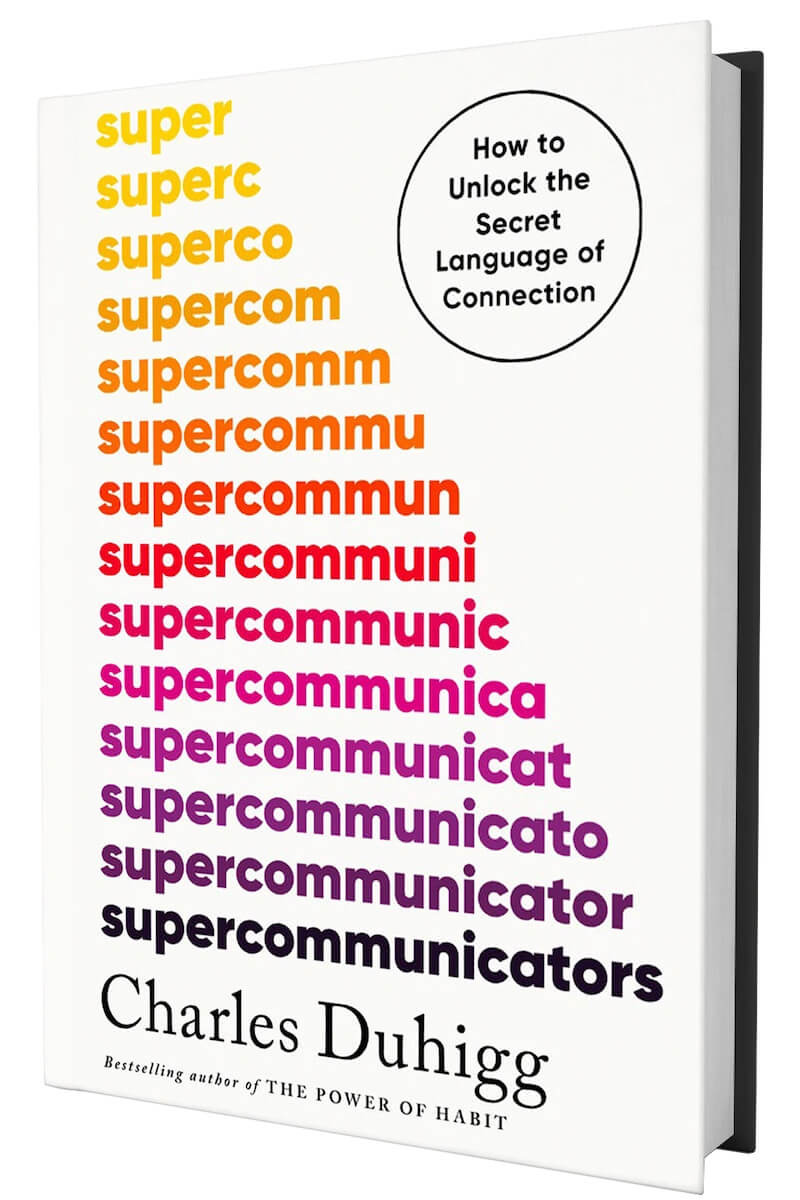How do I survive small talk?
Science says: Make it deep talk, which is easier than you think.

Reader Josie M. asks:
I started a new job and I need to talk to LOTS of new people. These are coworkers I want to bond with, but I’m having trouble connecting, especially since most conversations are short. I don’t want to come off as too intense, or ask intrusive questions - but, when I stick to small talk, it gets boring quick. Is there an easy way to quickly connect?
Meeting new people is tough. Small talk is even harder. It can feel awkward to ask real questions (What’s wrong with everyone in accounting?), but sticking to the conversational shallows is even worse (The printer keeps jamming, am I right?)
Luckily, there’s research on how to make small talk into something more meaningful – and the data shows it’s easier, and more enjoyable for everyone involved, than we think.
The key is understanding EVERYONE wants a deeper conversation – you just need to give them permission.
Studies point to four techniques we can use during a cocktail party, or pre-meeting gabfests – or even when talking to a stranger – that helps us meaningfully connect.
TIP ONE: ASK DEEP QUESTIONS
A deep question asks someone about their values, beliefs or experiences. Rather than asking someone about the facts of their life (“Where do you live?”) it asks how they feel about their life. (“What’s the best part of where you live?”) Studies show that people love answering deep questions, because it gives us a chance to share something meaningful about ourselves.
And deep questions are easy to ask. As Nicholas Epley, a psychology researcher at the University of Chicago told me, “Like when I’m on a train, talking with people commuting to work, I might ask them, ‘What do you do for a living?’ And then I might say, ‘Do you love that job?’ or ‘Do you have something else you dream of doing?’ And right there, you’re two questions in, and you’ve gotten to somebody’s dreams.”
TIP TWO: PROVE YOU ARE LISTENING
Often, when we’re talking to someone new, there’s a nearly subconscious suspicion in our minds: Is this person really listening, or just waiting their turn to speak?
We only really feel connected to someone if we believe they are listening – and so it’s essential that we prove we’re listening. One easy way is follow-up questions: They show we’re paying attention (and will help the other person to like and trust you.) Another technique, particularly for tough conversations, is looping for understanding: Ask a question (preferably a deep question). Repeat back, in your own words, what you heard. Then – and this is the step most people forget – ask if you got it right.
TIP THREE: ENGAGE IN ‘RECIPROCAL AUTHENTICITY’
Every conversation contains a series of small experiments: I tell a joke to see if you laugh along. You share a story to see if we have something in common. Each time, we expose something authentic – and potentially vulnerable – about ourselves (what if they don’t laugh?).
The human brain is fine-tuned to pay attention to vulnerability – as Harvard researcher Amit Goldberg told me, “Vulnerability is one of our loudest emotions. We’re hardwired to notice it.”
But when someone exposes authenticity, and we don’t respond in kind, a conversation can feel one-sided. People might feel unappreciated or judged.
So it’s important that we engage in ‘reciprocal authenticity’: When someone says something real (“I went to my son’s graduation this weekend, and it was amazing”) reply with something similarly authentic (“Oh, wow. I can’t wait for my kids to reach that stage – but, I’m also a little sad they’re growing up.”) Meaningful connections come from sharing authentic parts of ourselves.
TIP FOUR: NEVER TELL SOMEONE “HE’S GOING TO BE ALL RIGHT”
At least, that’s the lesson I took from this documentary:
A lot of these tips – and many more – come from my book Supercommunicators, coming out next week! You can order it here - and if you do, and would like a signed bookplate, let me know.


I'm finding it hard to enjoy small talk and feel out of place with it. Pretending to like these conversations isn't working for me anymore.
Because of this, I'm moving away from casual chats. I feel like I don't fit in with people who prefer light talk.
It's tough to find people who want deeper conversations. Most lose interest after a bit, sticking to simple topics like the weather, while I want to talk about more meaningful things.
Let small talk be your warmup and look for threads for deeper discussion.